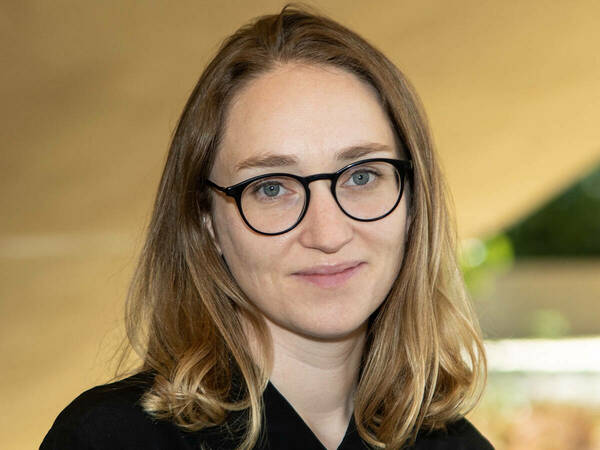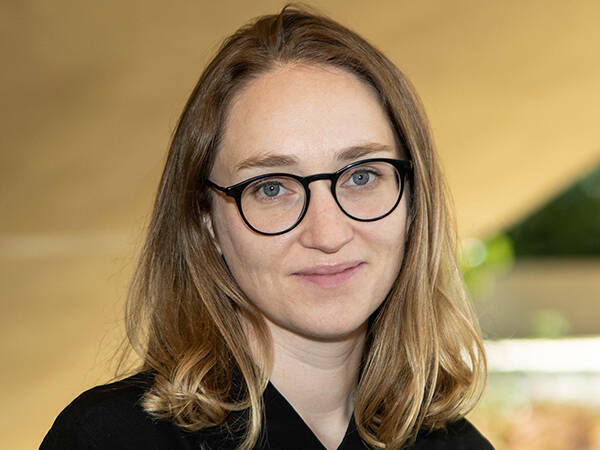

Thanks to a major research grant, University of Notre Dame anthropologist Aidan Seale-Feldman will spend the next three years exploring how exposure to experimental mental health treatments impacts spirituality among secular Americans.
The assistant professor in the Department of Anthropology has been awarded a $370,000 grant from the John Templeton Foundation in which she will lead 10 other interdisciplinary researchers to work on the project “Ethical Substance: Psychedelic Medicine in Times of Social and Spiritual Yearning.”
The purpose of the grant is to explore the dynamic of psychedelic-assisted treatment for mental health and how it impacts spirituality in the secular world.
“In the midst of the reports on America’s growing mental health crisis, I was really drawn to the excitement around psychedelics as highly-effective treatments for things like anxiety, PTSD, addiction, and treatment-resistant depression,” Seale-Feldman said. “Maybe you could call it hype, but there's a lot of hope. It feels very hopeful, and that, to me, is exciting — that there is an emergent field of mental health care that might be revolutionary.”
Examining the impact of mystical experiences
Seale-Feldman, a medical anthropologist whose research specializes in crisis, care, and psychic life, will examine how the efficacy of psychedelic-assisted treatment of mental health issues — specifically through the use of hallucinogens such as psilocybin and ayahuasca — correlates with the presence of mystical experience and how these powerful experiences could transform relationships to spirituality among the non-religious.
“Psychedelics, in general, have always been on the border between the secular and the sacred,” she said. “In non-clinical settings, these substances are also referred to as ‘entheogens,’ and ‘sacred medicines,’ and there is a long history of Indigenous use in both religious and healing practices throughout the Americas. So there's this sense of tension (between the differing interpretations), and I'm really interested in the fact that these substances live on that border.”
Mystical experiences have been written about for hundreds of years by both religious and secularist groups and have been described as a life-changing moment that unifies the divine and dissolves the boundaries of ego. Seale-Feldman said researchers have found this experience to be key in psychedelic treatment efficacy, and she is curious about the after-effects.
“The focus of the project is really on this question of the incorporation of mystical experiences into the lives of secular Americans and their therapeutic practices,’” Seale-Feldman said. “And we’re exploring what the impact of this might be in times of social and spiritual crisis.”
Advancing research with interdisciplinary work
Seale-Feldman is now leading a team of scholars — who specialize in anthropology, psychiatry, clinical psychology, philosophy, theology, and religious studies — to conduct and analyze research at four field sites over three years. The sites include a clinical trial for psilocybin-assisted palliative care, psychedelic churches, a psychedelic-therapy training program, and psychedelic science conferences.
“The focus of the project is really on this question of the incorporation of mystical experiences into the lives of secular Americans and their therapeutic practices. And we’re exploring what the impact of this might be in times of social and spiritual crisis.”
By the end, she said, their work will result in a number of published articles, an ethnographic book manuscript, podcast episodes, and a public workshop at the renowned retreat center Esalen Institute in California.
Both mental health and psychedelics have been marred by cultural taboos and stigma, but Seale-Feldman said this grant signals a shift in public perception of the topics.
“Given the state of mental health in the U.S. right now, I think we need to be as open-minded as possible in exploring a wide range of pathways towards healing,” she said. “And to also ask how the resurgence of interest in psychedelic medicine might impact people's lives beyond the area of mental health and into domains related to spirituality and meaning.”
Seale-Feldman is excited to approach this research through an anthropological lens and work with experts across interdisciplinary disciplines. The hope, she said, is that their findings will contribute to the current research dialogue, which has been primarily dictated by a psychiatric approach.
“I think it’s a really exciting new direction,” Seale-Feldman said. “There’s a lot of hype and narrative surrounding the so-called ‘psychedelic renaissance,’ so I’m hoping this research can be a kind of empirical study of that — to explore the impacts these experiences have on people and how psychedelic medicine could reconfigure our whole way of thinking about mental health care.”
Originally published by at al.nd.edu on March 27, 2024.